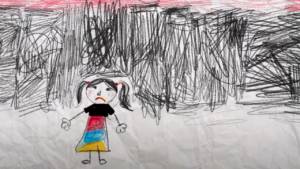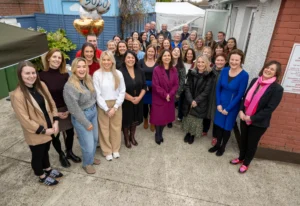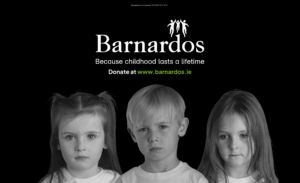Children and Adolescents who are in State Care should be in Foster Care or Regulated Residential Placements
The Prime Time programme (on 9/5/2024) highlights that children are being placed in Special Emergency Arrangements which are completely unsuited to meeting their needs. Barnardos sees first-hand the unsuitability of these placements and the impact on children via our Guardian ad Litem service.
Freda McKittrick, Head of Barnardos Guardian Ad Litem service said: “The State acts in locus parentis to children in their care and has a responsibility to ensure that children are placed in settings that meet their needs. Whilst Barnardos is aware of the pressures on Tusla in finding suitable accommodation for children, we are calling for an urgent phasing out of the reliance on unregulated placements. In the interim, we recommend the following as a priority:
The quality of the day to day lives of children in SEAs must be immediately improved and all should provide good standards of day to day care.
The Home – the basics
- There is a homely, clean and comfortable environment, with furniture fittings and facilities such as laundry equipment, which should be in good repair
- All basic needs such as crockery, cutlery, toiletry items, cleaning products, bedding and towels are provided
- The child/young person has a bedroom for their sole use
- Children have nutritious food and can eat with their carers
- The child can participate in positive day to day activities such as training and education
The Carers – the basics
Looking after children in care is highly skilled work and there is currently a shortage of trained care workers and a high turnover of staff. Staff need to be qualified and supported to deliver good quality care. We are aware that many staff in SEAs lack adequate training, qualifications and experience in looking after high risk young people.
At a minimum we would expect the following:
- Young people are looked after by staff who listen to them and show them care and respect
- Staff have supervision and support, and are prioritised for training in working with young people who have high needs and have experienced trauma
- There are systems to record and share information to ensure that all staff are aware of the child/young person’s needs and preferences and that these are regularly updated
- Reliable arrangements outside of 9-5 hours including the ability to contact senior staff for support and there is a comprehensive absence management plan for the child/young person
It is fully recognised that there will always be times when an emergency arises and we want to avoid a return to children needing to stay overnight in a Garda Station and to phase out the current use of hospitals for children who don’t need medical care.
In the long term, emergency arrangements that meet the needs of children and that provide quality services are essential, as is the support of and investment in the staff who care for them.
Barnardos calls for the following:
Children’s Rights are Protected
Children who cannot live with their family are entitled to be placed in quality, regulated accommodation. An emergency situation is just that – a very short term stop gap until the child can be moved to a setting that suits their needs.
- All children in Special Emergency Arrangements (SEAs) should have a GAL appointed to hear their voices and to independently assess their care plan
- Children placed in SEAs should have a minimum of one Child in Care Review per month. Each meeting should examine the needs of the child and promote the SEA exit plan for the child
- Any inspection of SEAs should directly involve the children who live there
- Timescale: Immediate
Children’s care services are improved
Training
- Providers are required to arrange for staff training in areas including key working, sharing and recording information, direct work with children and adolescents, child protection and safe guarding, understanding emotional needs and challenging behaviour
- Timescale: Immediate
Inspection:
- Responsibility for inspection of all residential placements, regulated or unregulated to be transferred to HIQA. HIQA to be resourced appropriately to manage this increase in inspections
- Timescale: Requires changes to regulations overseeing inspection, additional funding, staff recruitment so may take 18 months – 2 years
- Current inspection regime should be strengthened to include fire safety and other health and safety issues, to begin before first child moves into the home and should be re-inspected at least every three months. Inspections need to seek out child and GAL views on care provided
- Timescale: Immediate
Strategy
- Development and implementation of an interdepartmental evidence informed residential strategy which would accurately project the number and needs of children and adolescents requiring residential accommodation and development of same
- In the medium term the use of these arrangements should be phased out. There should be a dedicated pathway to support the SEA units that are working well to achieve regulation as soon as possible, and those that do not, should be phased out
- Timescale: 2 years
Notes to Editor:
What is a GAL?
A Guardian ad Litem (GAL) is an experienced professional, usually social work qualified, who works directly with children and their family and professional network. They represent the views and the interests of children who are going through care proceedings or who are already in care. They are independent of the Child and Family Agency (TUSLA).
How does the GAL service work?
The Guardian ad Litem is appointed by the Judge who is considering whether to make a care order or whether there are aspects of a child’s care that needs to be reviewed by the court. The GAL reports to the court on the child’s views, and independently evaluates the plan for the child. The GAL will advocate on the child’s behalf for services and care arrangements that will benefit the child.




